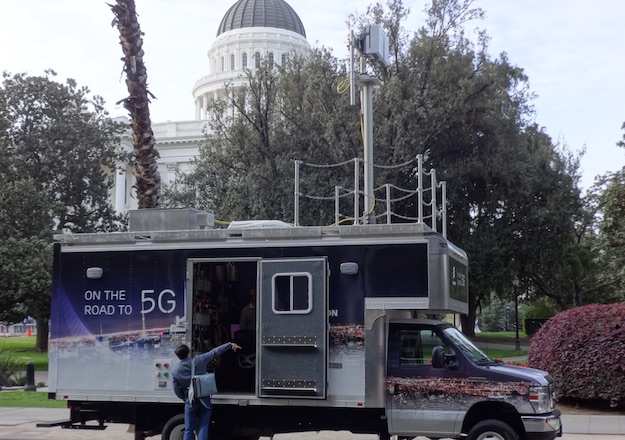
Five major broadband issues will top the public policy charts in California and at the federal level in 2019. In no particular order…
- Net neutrality – The ball is in a federal appeals court in Washington, D.C., where arguments will be heard in February over whether the Federal Communications Commission acted properly in 2017 when it declared broadband is not a telecommunications service. California’s net neutrality law is on hold until that case plays out, which could take years. Congress is unlikely to act. In 2018, house democrats couldn’t even agree amongst themselves whether to overturn the FCC decision.
- Privacy and data ownership – Big corporations with big political budgets will be urging congress, on the one hand, to preempt state privacy legislation with friendlier federal rules, and on the other hand they’ll be trying to water down California’s new privacy law. A bill that’s already been introduced in Sacramento could do that. The larger debate – who owns customer data, consumers themselves or the companies they share it with? – is just beginning. Congress, courts, regulators and administrators will be involved, but tech companies can get in front of the issue. 2019 is their opportunity to offer answers. If they don’t, governments will decide for them.
- Monopoly vs. competition – Courts and regulatory agencies will decide whether competition continues to shrink as monopoly model ISPs grow. T-Mobile’s takeover of Sprint is under review by the FCC and the CPUC. The federal justice department gets a look too, and it continues to challenge AT&T’s purchase of Time Warner in court. Cable and telco lobbyists are whispering wishes into compliant republican ears at the FCC, this time with the aim of killing municipal broadband competitors. The CPUC looks at broadband affordability and the future of PG&E, one of the few remaining sources of independent dark fiber. It also has to decide if it’s serious about the conditions it puts on mergers and acquisitions, as it did with Charter’s purchase of Time Warner cable systems.
- Local ownership and authority – Another federal court fight heats up, as an FCC order regarding wireless facilities is otherwise set to take effect on 14 January 2018. It limits what local government can do with property they own in the public right of way, restricts their authority to review permit applications, and sets shorter shot clocks for decisions. Lobbyists and lawyers for mobile carriers are already using the order to try to force cities to do their bidding, and they’ll be handing out cash to legislators in Sacramento, while asking them to bake FCC rules into California law.
- Broadband infrastructure subsidies – Applications for grants from the rebooted California Advanced Services Fund (CASF) are due in April, and in a couple of weeks incumbent Internet service providers have a chance to exercise the right of
the first nightfirst refusal that California lawmakers gave them in 2017. Cash payments from AT&T, Comcast, Charter and other monopoly model ISPs tilted the playing field. The California Public Utilities Commission tried to level it a bit; we’ll see in the next few months whether CASF will improve broadband access in rural California, or simply be a $300 million slush fund for telcos and cable companies. The federal agriculture department is rolling out a $600 million rural broadband grant and loan program, with billions more on the way, and it’s better designed to benefit rural communities.
The players are changing, too. New CPUC and FCC commissioners will take their seats, and a new administration takes office in Sacramento. Not much has changed at the California legislature, though. Democrats have a super majority in both houses, with familiar faces leading key telecoms committees. Charter, Comcast, AT&T and Frontier know where to send the checks.
